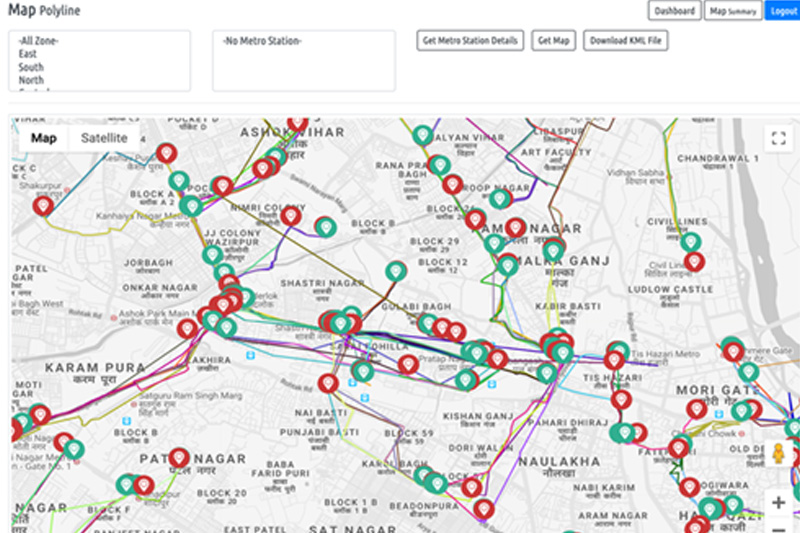An Indian electric two-wheeler manufacturer wished to map the existing e-rickshaw infrastructure in Delhi, including the e-rickshaw routes, charging stations, and service stations.

An Indian electric two-wheeler manufacturer wanted to map the existing e-rickshaw infrastructure in Delhi. To get a comprehensive idea of the infrastructure, the following aspects needed to be monitored:
E-rickshaw routes: Existing charging and service stations
Electric rickshaws operating in Delhi
The project was split into three stages:
The 3-step survey helped to identify and map the routes where there is a sizable as well as negligible penetration of e-rickshaws.
In addition, the entire route of Delhi was drawn on a customised map dashboard developed to identify the existing routes, the route length and time.
The survey laid the groundwork for the potential need for charging and service stations, and its utility in supporting the e-rickshaw infrastructure for commercial viability.